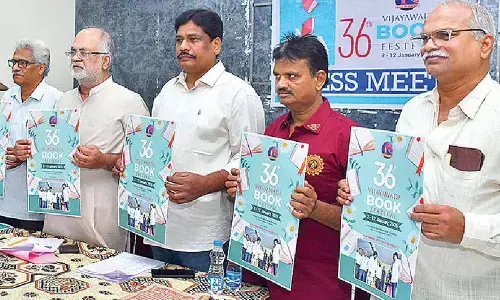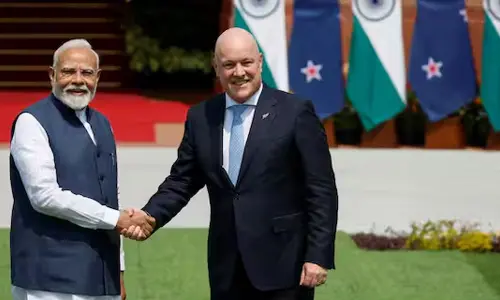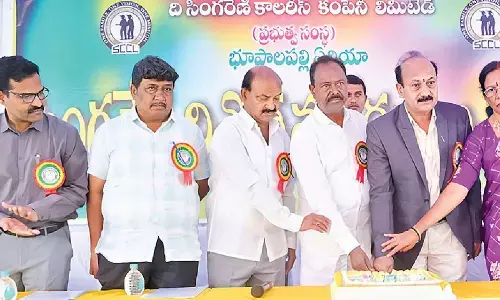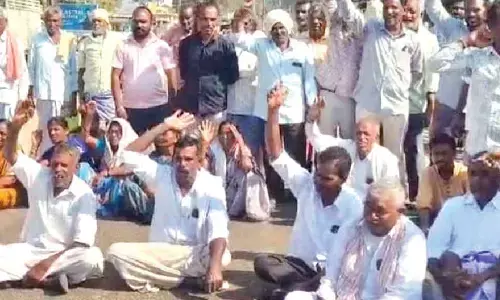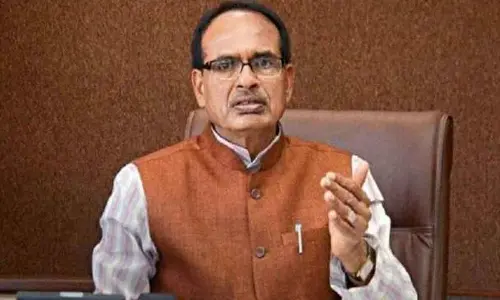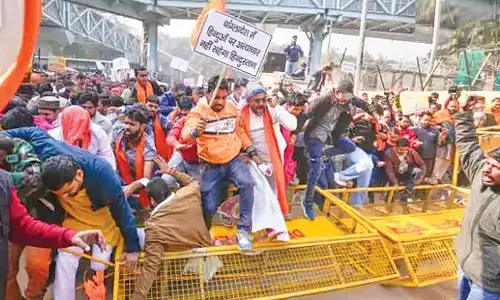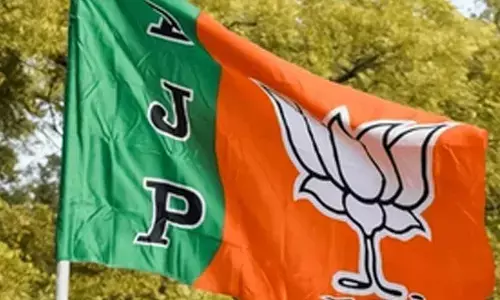Jindal Global University releases Handbook on rights of transgender & gender-diverse persons
Share :

The Handbook on the Rights of Transgender & Gender-Diverse Persons in India was unveiled by Justice A.K. Sikri, a former judge in the Supreme Court, and Prof. (Dr.) C. Raj Kumar, Founding Vice Chancellor, O.P. Jindal Global University, in the presence of stakeholders and activists from the trans justice movement.
New Delhi: The Handbook on the Rights of Transgender & Gender-Diverse Persons in India was unveiled by Justice A.K. Sikri, a former judge in the Supreme Court, and Prof. (Dr.) C. Raj Kumar, Founding Vice Chancellor, O.P. Jindal Global University, in the presence of stakeholders and activists from the trans justice movement.
The Handbook has been prepared by the Law and Marginalisation Clinic, Centre for Justice, Law and Society (CJLS) at Jindal Global Law School under the supervision of Professor Dipika Jain and Natasha Aggarwal as part of the clinical course titled "Trans Justice and the Law Clinic" in collaboration with Transmen Collective, Egale, and Feminist Future.
Initiative at the University of California, Santa Barbara. The Handbook demystifies the Transgender Persons (Protection of Rights) Act, 2019 and seeks to empower transgender and gender-diverse persons in asserting their constitutional and statutory rights.
In the special address, Justice A.K. Sikri (former judge, Supreme Court) emphasised the importance of the Handbook, and delved into his experiences in writing and delivering the judgment of the Supreme Court in National Legal Services Authority v Union of India in 2014.
He stated: "We have come a long way from the judgement, to the Act and now resources like this handbook which will help the community realise their rights and fulfil the promises of the Constitution of India."
Justice Sikri also explained the importance of identities, not only from jurisprudential perspectives but also to ensure respect and dignity within society.
In the welcome address, Prof. (Dr.) C. Raj Kumar (Founding Vice Chancellor, O.P. Jindal Global University) emphasised JGU's commitment to clinical legal education and remarked that: "It is important for law schools to ensure engagement with social justice
movements."
He also emphasised the intellectual rigour and collaborative approaches required in developing a handbook that is comprehensive, accessible and can be used on-ground by activists and community members.
Introducing the Handbook, Dipika Jain, Professor of Law, Vice Dean, Director, Law and Marginalization Clinic, Centre for Justice, Law and Society, Jindal Global Law School and Natasha Aggarwal, Clinical Assistant Professor of Law, Jindal Global Law School, explained that the work of the Law and Marginalization Clinic is grounded in intersectional and community-centric approaches.
The objective and outcome of each clinical project is framed by friends from the trans movement.
The Handbook is no exception, as friends from the trans movement emphasised the need for a resource that comprehensively deconstructs the Transgender Persons Act.
They also expressed their immense gratitude to members of trans, gender-diverse and intersex communities who offered their expertise and feedback through consultative processes and reviews.
The Handbook demystifies the provisions of the Transgender Persons Act, the Transgender Persons Rules, relevant judgments of the Supreme Court and various High Courts as well as state-specific welfare schemes
for transgender and gender-diverse persons.
Specifically, the Handbook simplifies the process for obtaining identification documents that reflect a person's gender identity and explains the rights of transgender and gender-diverse persons in the realms of education, employment and healthcare.
The Handbook uses hypothetical scenarios to demonstrate how a transgender and gender-diverse person can assert their rights under the law.
Moreover, these hypotheticals account for unique barriers faced by individuals across socio-political and geographical contexts, including Dalit, Bahujan, Adivasi and Muslim persons and persons with disabilities.
The Handbook will be an important tool for the legal empowerment of activists and organizations working on-ground as well as transgender and gender-diverse persons across India.
The launch event also featured a panel discussion with Madhavi Goradia Divan (Senior Advocate, Supreme Court), Akkai Padmashali (Social Activist and Founder of Ondede), Nu Misra (Founder, Revival
Disability India) and Ritwik Dutta (Journalist, BBC).
The panel was moderated by Dr. Aqsa Shaikh (Professor of Community Medicine Founder of Human Solidarity Foundation).
Advocate Madhavi Divan discussed the important provisions of the Transgender Persons Act and touched upon some of the limitations of the legislation, noting the lack of affirmative action and the procedural
complexities in obtaining identity cards for transgender persons.
Ritwik Dutta also touched upon the implementation of welfare schemes under the Transgender Persons Act, specifically noting the lack of implementation of the SMILE scheme in the northeast India.
Similarly, Akkai Padmashali pointed to the limited number of identity cards that have been issued, which in turn has presented negatively impacted the number of transgender persons who can register to vote.
Dr. Aqsa Shaikh and Nu Misra stressed upon the value and importance of the Handbook.
In particular, Nu Misra commended the incorporation of visual elements and artwork, noting that art is frequently a tool of advocacy among activists.
Dr. Aqsa also highlighted the ways in which the Handbook draws from lived experiences and highlights how the law can be used in each of these situations.







